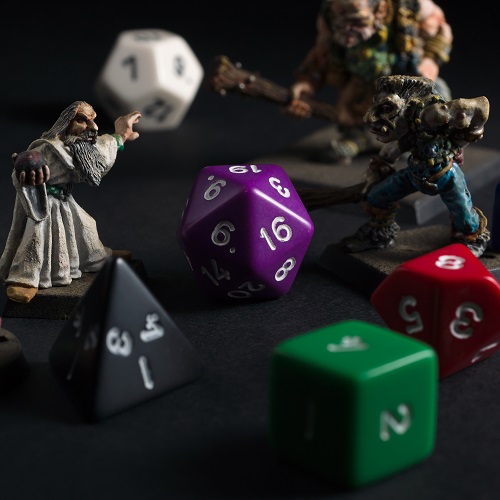03 July 2023

When fantasy tabletop role-playing game Dungeons and Dragons featured on Netflix sensation Stranger Things, online searches for the game shot up considerably.
Thanks to inclusion in such popular TV shows, the game often associated with geeks and nerds now attracts an estimated 50 million players worldwide.
Researchers at the University of South Australia are examining the possibility of using tabletop role-playing games (TTRPGs) such as Dungeons and Dragons to promote social growth in people who are neurodivergent or live with disability.
TTTRPGs are games of imagination, played in an imaginary world using characters created by players.
In one of the best known TTRPGs – Dungeons and Dragons – players often meet in-person around a table, or online, to embark on dangerous quests in search of treasure, to battle deadly foes or carry out daring rescues.
One person takes on the role of game master who is responsible for guiding players through the story and is the lead referee. Games can last a couple of hours through to stories spanning years.
A neurodiverse research team was gathered to undertake a scoping review of existing academic literature surrounding the use of TTRPGs to promote social growth in players.
The research is part of a collaboration between UniSA and social gaming company Minds At Play to better understand how roleplaying games can boost confidence and self-esteem in players to improve their mental wellbeing.
UniSA gaming expert Dr Susannah Emery says that the findings of the review show that it’s an under-researched area requiring further investigation.
“We found that the academic literature in this area focused on the use of TTRPGs by therapists as a way to engage their clients, but there is very little data in regard to players sharing their own experiences with these role-playing games and we believe this is a critical missing voice,” she says.
“There is a significant opportunity for further research to be pursued and the area to be more deeply investigated.”
However, Minds At Play, one of the leading social gaming companies in Australia that runs online TTRPG sessions, has seen the benefits firsthand.
The Sydney-based company runs online TTRPG sessions that provide a safe environment for neurodiverse players to have positive social experiences.
Inspired by the positive outcomes Minds At Play has seen among its players, UniSA partnered with the organisation in 2022 to better understand how TTRPGs can help build social skills.
Minds At Play Ambassador of Amazement, Dwayne Fernandes, says he has observed the impact TTRPGs such as Dungeons and Dragons have on promoting social growth in players.
“Minds At Play has witnessed players who were initially socially isolated due to anxiety about social interactions grow in confidence and actively seek out face-to-face social groups, such as those in local libraries,” he says.
“This demonstrates how TTRPGs can empower individuals to overcome social barriers and develop meaningful connections in real-life settings.”
Fernandes says the benefits of TTRPGs extend far beyond social growth, as the nature of the games require decision-making, negotiation and problem-solving abilities.
“Improved communication is a key outcome, as players learn to articulate their thoughts, negotiate with others, and collaborate effectively,” he says.
“Further research into the benefits of neurodiverse individuals and people with disabilities playing TTRPGs has the potential to improve the quality of life, social inclusion, and well-being of these individuals.”
…………………………………………………………………………………………………………………………
Media contact: Melissa Keogh, UniSA Media Team M: +61 403 659 154 E: Melissa.Keogh@unisa.edu.au



